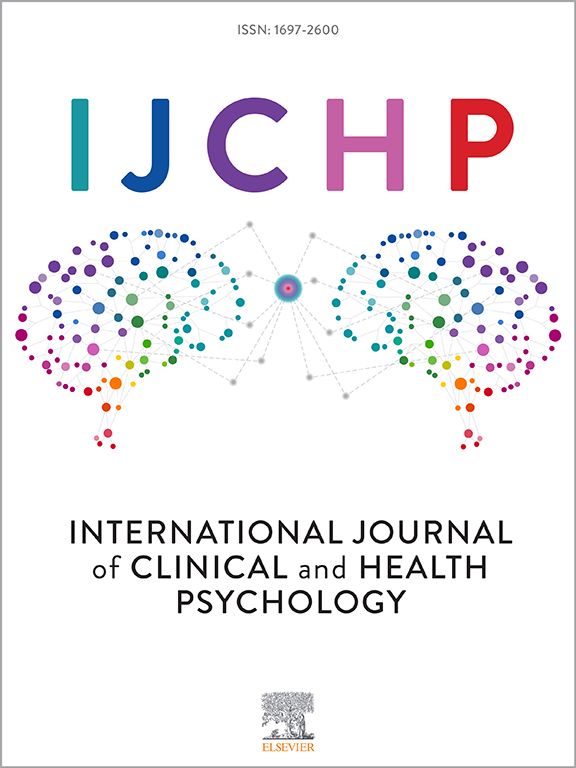肿瘤健康心理学研究进展:癌症患者的生物行为模型、应激途径和应激管理干预
IF 4.4
1区 心理学
Q1 PSYCHOLOGY, CLINICAL
International Journal of Clinical and Health Psychology
Pub Date : 2025-07-01
DOI:10.1016/j.ijchp.2025.100615
引用次数: 0
摘要
癌症的社会心理适应涉及情感、认知和生物过程之间的相互作用。尽管心理干预的有效性已被充分证明,但将心理适应与生理结果联系起来的机制在各个学科之间仍然是碎片化的。《国际临床与健康心理学杂志》特刊《肿瘤健康心理学研究进展:癌症患者的生物行为模型、压力途径和压力管理干预》解决了这一空白,并概述了这一问题。作为特刊的概述,本文提出了一个综合脑功能、压力反应系统和社会心理变量的综合生物行为模型,以解释压力管理干预(包括通过数字平台提供的干预)如何影响癌症治疗的健康轨迹。使用有针对性的叙述方法,我们借鉴了最近的实证研究结果和作者先前进行的综合综述,以检查:(a)感知压力和炎症在整个癌症连续体中的影响;(b)连接情感、神经内分泌和免疫功能的脑-体应激反应通路;(c)调节这些系统并改善行为和健康结果的心理干预的证据;(d)这一研究和癌症治疗领域未来面临的挑战。有证据表明,与癌症相关的痛苦与神经和免疫失调有关,炎症是一个中心途径。基于认知行为理论并使用数字交付模式的压力管理干预措施有望改变这些生物行为机制,从而提高癌症幸存者的恢复力、生活质量和潜在的长期健康结果。本文章由计算机程序翻译,如有差异,请以英文原文为准。
Advancing health psychology research in oncology: Biobehavioral models, stress pathways, and stress-management interventions for cancer patients
Psychosocial adaptation to cancer involves interactions among emotional, cognitive, and biological processes. Although the efficacy of psychological interventions is well documented, the mechanisms linking psychological adaptation to physiological outcomes remain fragmented across disciplines. The Special Issue of the International Journal of Clinical and Health Psychology, “Advancing Health Psychology Research in Oncology: Biobehavioral Models, Stress Pathways, and Stress-Management Interventions for Cancer Patients” addresses this gap and this paper serves as an overview.
As an overview for the Special Issue, this paper proposes an integrative biobehavioral model that synthesizes findings on brain function, stress-response systems, and psychosocial variables to explain how stress management interventions— including those delivered via digital platforms—may influence health trajectories in cancer care.
Using a targeted narrative approach, we draw upon recent empirical findings and prior integrative reviews conducted by the authors to examine: (a) the impact of perceived stress and inflammation across the cancer continuum; (b) brain-body stress response pathways linking affective, neuroendocrine, and immune function; (c) the evidence for psychological interventions to modulate these systems and improve behavioral and health outcomes; (d) future challenges for this line of research and cancer care.
Evidence suggests that cancer-related distress is associated with neural and immune dysregulation, with inflammation emerging as a central pathway. Stress management interventions, based on cognitive-behavioral theory and using digital delivery modalities, show promise in altering these biobehavioral mechanisms, thereby enhancing resilience, quality of life, and potentially long-term health outcomes in cancer survivors.
求助全文
通过发布文献求助,成功后即可免费获取论文全文。
去求助
来源期刊

International Journal of Clinical and Health Psychology
PSYCHOLOGY, CLINICAL-
CiteScore
10.70
自引率
5.70%
发文量
38
审稿时长
33 days
期刊介绍:
The International Journal of Clinical and Health Psychology is dedicated to publishing manuscripts with a strong emphasis on both basic and applied research, encompassing experimental, clinical, and theoretical contributions that advance the fields of Clinical and Health Psychology. With a focus on four core domains—clinical psychology and psychotherapy, psychopathology, health psychology, and clinical neurosciences—the IJCHP seeks to provide a comprehensive platform for scholarly discourse and innovation. The journal accepts Original Articles (empirical studies) and Review Articles. Manuscripts submitted to IJCHP should be original and not previously published or under consideration elsewhere. All signing authors must unanimously agree on the submitted version of the manuscript. By submitting their work, authors agree to transfer their copyrights to the Journal for the duration of the editorial process.
 求助内容:
求助内容: 应助结果提醒方式:
应助结果提醒方式:


